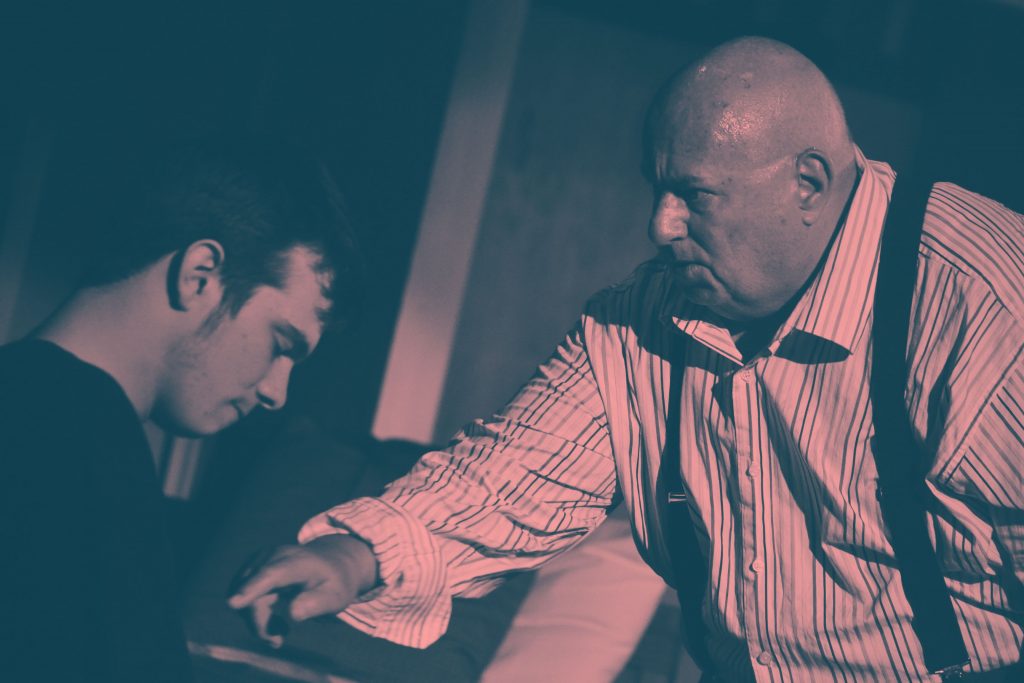
‘One Day of the Year’ // Mates Theatre Genesis
‘One Day of the Year’ was contentious.
As you walk into the small, warm community hall in Birkdale you are greeted by the faint hum of Eric Bogle’s iconic voice and music, murmuring quietly in the background. This perfectly sets the tone for Mates Theatre Genesis’ latest offering ‘The One Day of the Year’ by Alan Seymour. Set in the home of a working-class family as ANZAC Day approaches, the play explores opposing ideas of what “the day” means to Australians of the 1960s.
While director Jan Nary chose wisely to set this work firmly in the time Alan Seymour created it, her sensitive direction and perceptive cast powerfully combine to bring out the provocative themes of the play that are still just as relevant today, more than five decades on.
Once seen as a deeply divisive and controversial work, there is much in it that still rings true. Themes of nationalism, patriotism, class separation and even a smattering of colloquial racism permeate the work, asking questions of a young country defined by war, and what it means to be an Aussie in a more global society.
It also mirrors much of the polarising we see today in our social and political arguments; a hard left and a hard right screaming at one another, and a quiet, but deeply confused moderate voice, baffled that neither side is willing to listen, or perhaps to see that sometimes both sides can be right … and wrong.
Working on the postage-stamp-sized stage in the Birkdale hall, director Jan Nary, created such a perfect little world that you could almost smell the roast cooking, and hear the cups of tea clinking. A space that could have easily become cluttered, managed to feel perfectly homey, especially with James Auld’s clever lighting design that isolated each small area, the kitchen, living space, and bedroom respectively.
Nary also made the clever decision to leave actors on stage when not the focus of the scene, leaving them in freeze frames pondering over the kitchen table, or in a frozen kissing tableau as the action kept playing out elsewhere in the house. This kept the play moving, and also anchored things within the world.
As working class Aussie, and professional filibuster, Alf (Ray Noonan) held court as the family patriarch. With firm ideas about what it means to be Australian and a no-nonsense approach to anyone who might see things in another light, Noonan brought a proud optimism and a stoic warmth to a role that might otherwise have been overly harsh and uncompromising.
His attention to detail in moments of softness, the pride in his child, and his ability to help him with the simple act of polishing his shoes, were the ones that lifted his performance from good to great. While Noonan did occasionally drop lines, he always recovered and brought a searing, sometimes grotesque command to the space.
The prodigal son Hughie, played by Matthew Hodgson, was a spectacular foil to Alf’s nationalism. As a young man trying to understand the world and his place in it, Hodgson gave Hughie a glower that could melt the paint off walls, but he also managed to balance the character’s stubborn will with enough grace to keep the character earnest and likable.
His interactions with Noonan’s Alf are central to this show, and open up the conversation about what ANZAC Day “was” and what it has become. Both sides offered valid and insightful points of view about the origins of the day, and what it has morphed into through history.
As the rose between two thorns, Debbie Spearritt’s portrayal of Mum was earnest and heartfelt. She gave as good as she got on more than one occasion, and certainly held her ground when needed to, but more often than not, she was the necessary ear and quiet word of advice. Always ready with a cup of tea and a thoughtful suggestion.
Spearritt’s task was often the most difficult, having to sit and listen quietly for lengthy stretches. Never an easy task, she was always engaged and seemed to feel when the gaze of the audience would shift to her, as she was always ready with a small frown, a nod, or a smile.
It was the radiating inner strength that made her character so endearing, and Spearritt is to be commended for constantly maintaining a warm, familial energy.
Hands down the best aspect of this production is Leo Wockner as the old family friend, and war veteran, Wacka. Every moment of his work on stage is a revelation, not an easy feat given the limited lines that Wacka had to say. But it was his total immersion in the character, and his presence on stage in all interactions, that added a touch of class.
One particular scene highlight was Wacka was coming over just before sunrise to watch the ANZAC Day march on the newly rented tv. Standing in the doorway transfixed as he watched the sun come up, he quietly exclaims, “it was now,” followed by utter stillness as the Last Post plays.
In that quiet moment, something transformed the space and we were no longer actor and audience, but were unified in his experience. Silent, reflective, and together. Although he rarely spoke, Wockner’s Wacka was always the voice of reason, and for all the talk of war in the play, his quiet recital of storming the beach at Gallipoli is the only first-hand account we ever hear.
In many ways, the instigator of what unfolded throughout the course of the play, was Hughie’s girlfriend Jan, played by Rianna Shoemaker. Jan was breathtakingly rude, and quite outrageous in her interactions with Hughie and his family. But it was hard to actually hold any of it against her, such was her level of ignorance of her own societal privilege. Shoemaker gave a stiff and tightly reserved performance, doling out cutting lines with a smile and a wonderful sense of an upper-class girl going through a “working-class” phase.
In a final master stroke, playwright Alan Seymour refuses to come down in favour of one side or the other of the arguments he has explored throughout. A concept fully embraced by Nary, as her final image – Alf and Hughie facing off from opposite sides of the room – leaves audiences to make up their own minds as the curtain comes down.
This is a lovingly crafted production that should be seen and discussed. We may find that a little more nuanced discussion and a little less argument may bring us all closer together.
‘The One Day of the Year’ is on stage until Saturday May 11th 2019. It is of important note that the 1.00pm matinee on Saturday May 11 will be followed by a discussion on Post Traumatic Stress Disorder (PTSD) led by Management of the Veteran Mental Health Institute. For more information, or to book tickets, go to http://matestg.org.au.




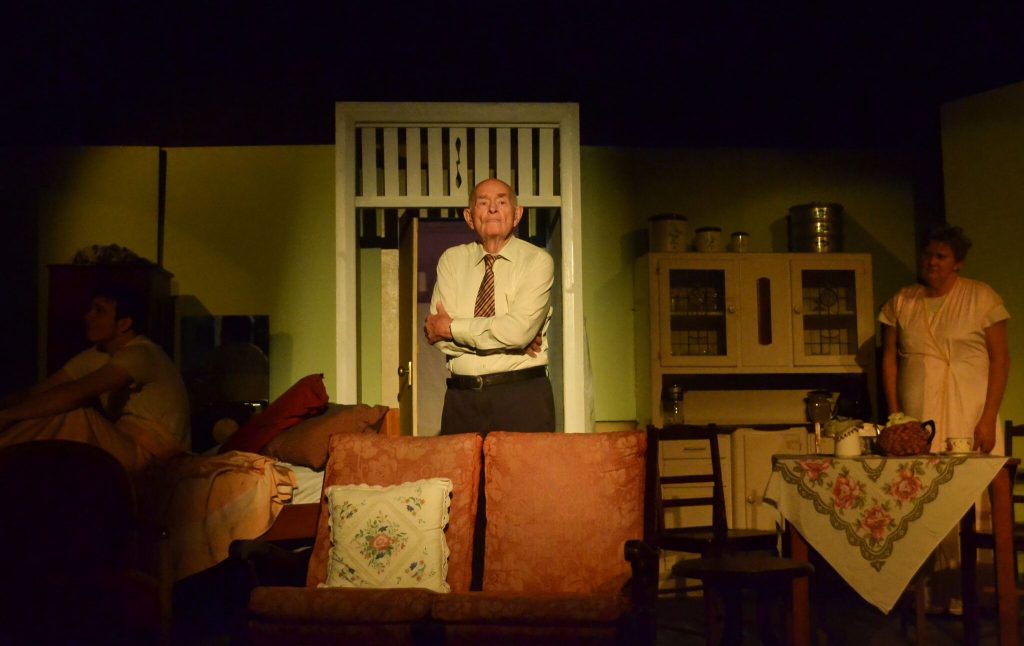
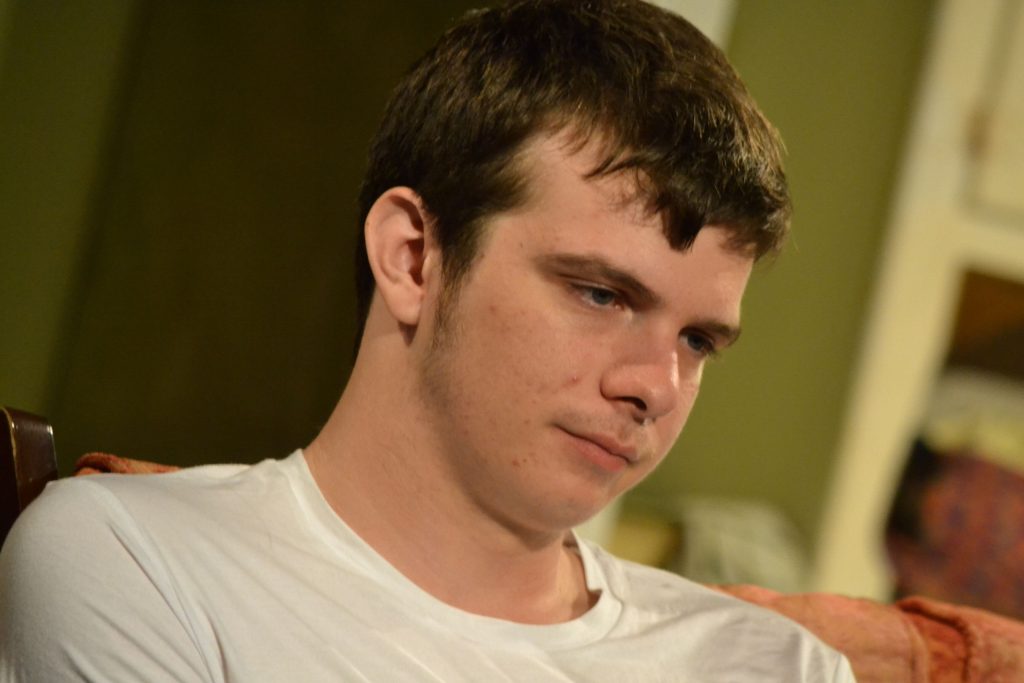
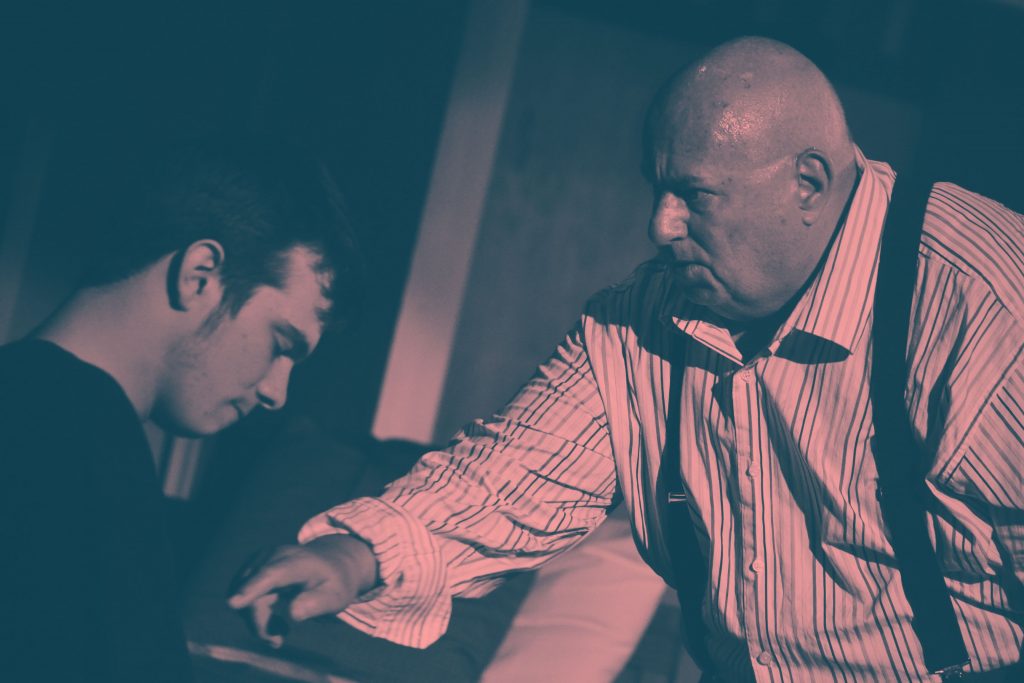
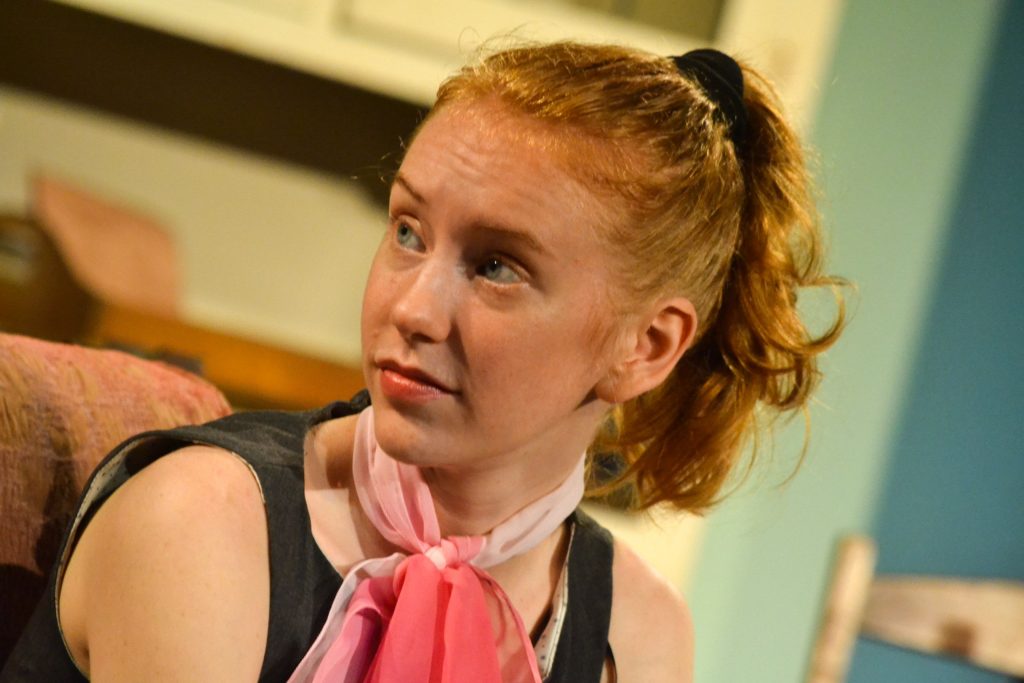
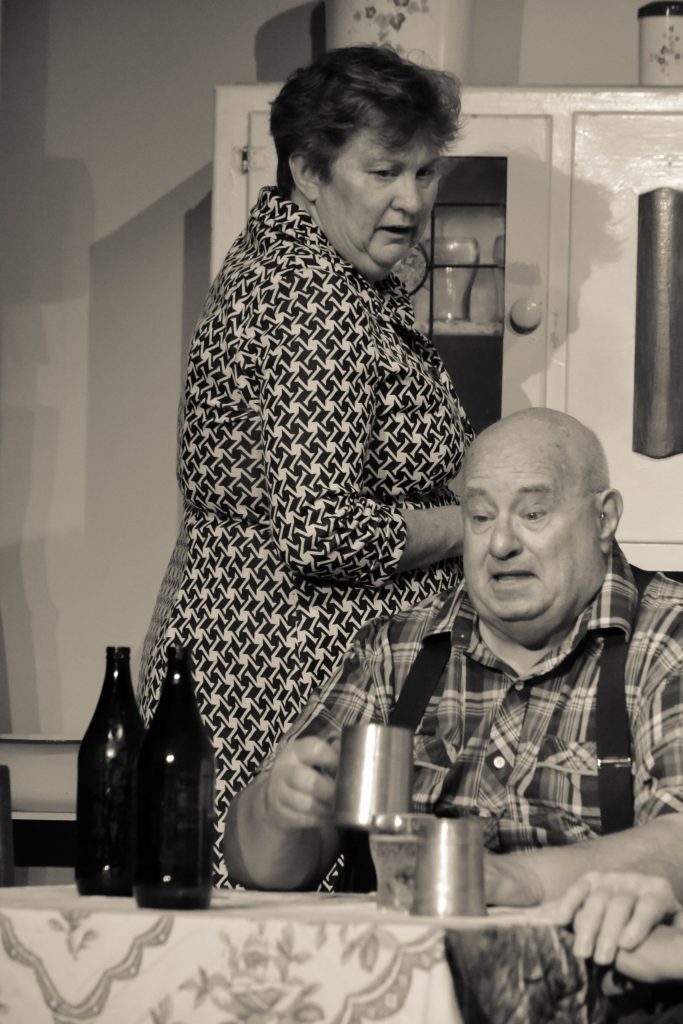
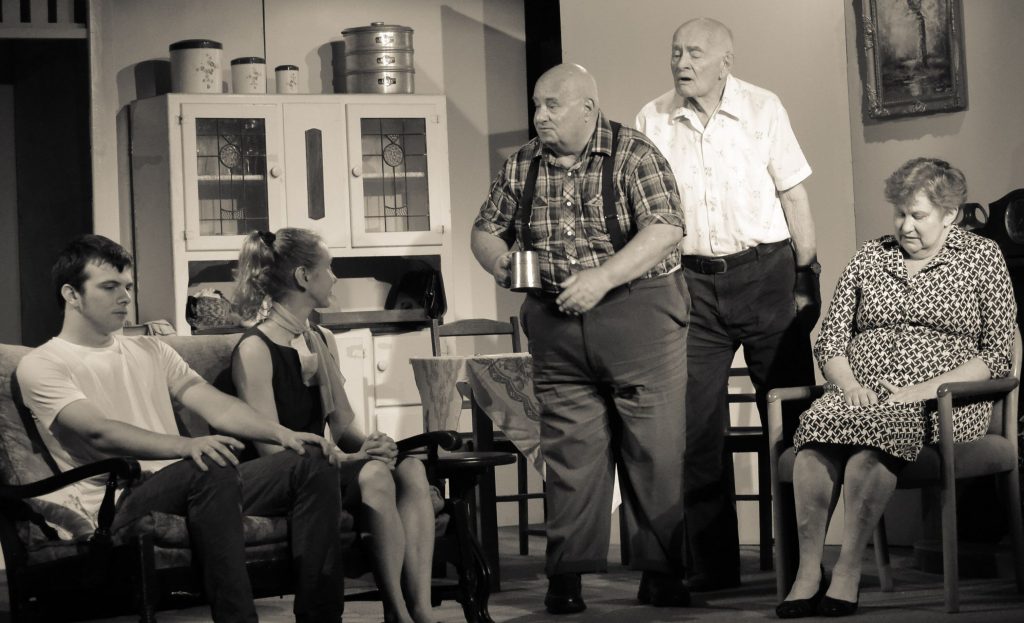
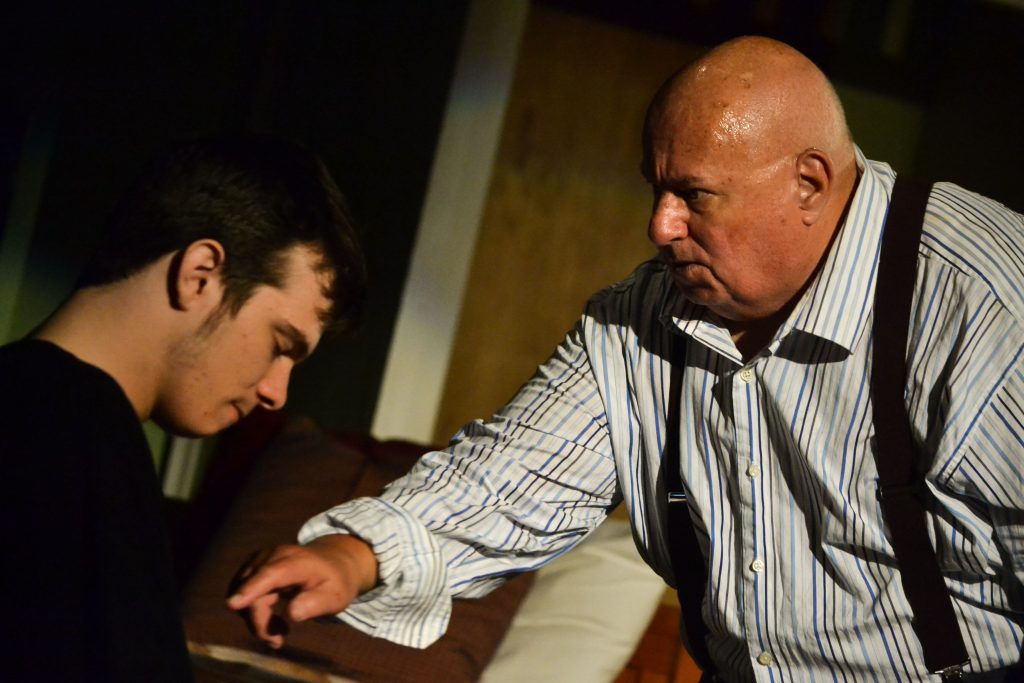


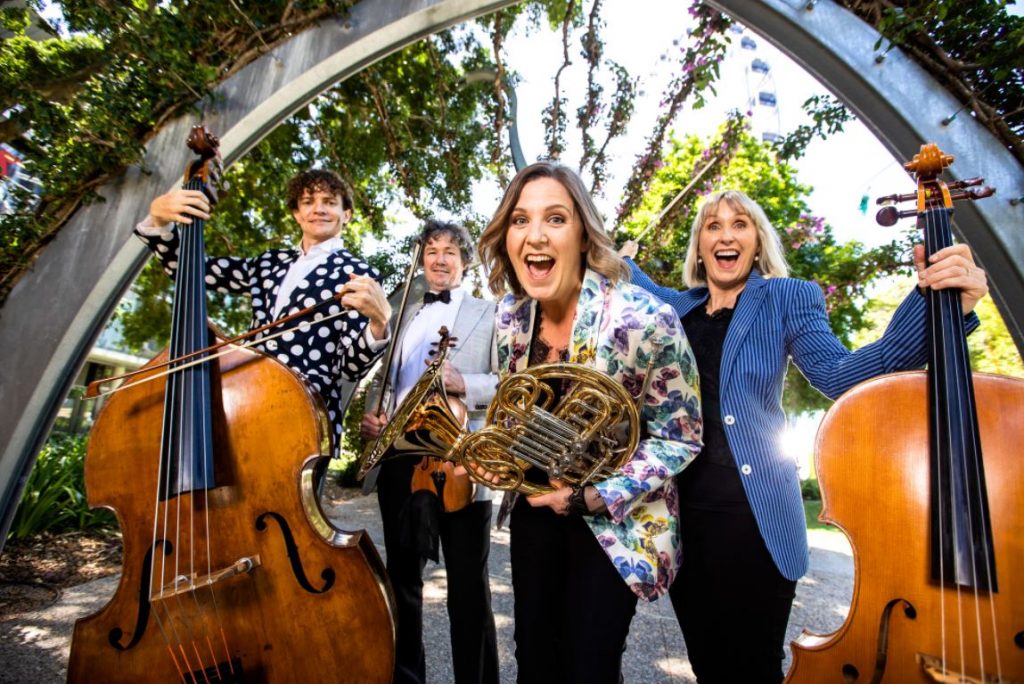
Great review. I enjoyed reading it. Missing a certain sentence, but I can understand why it was left out.